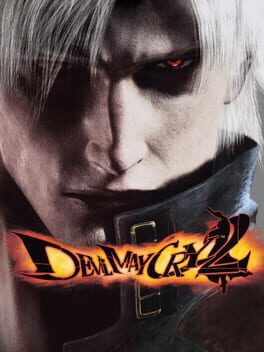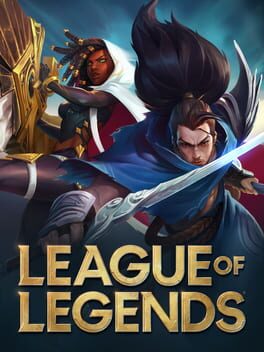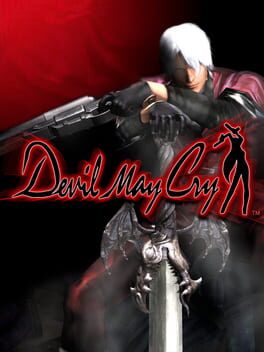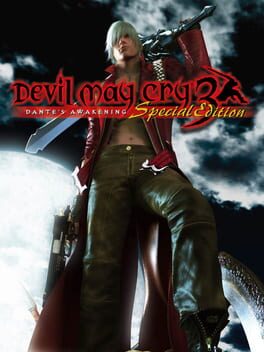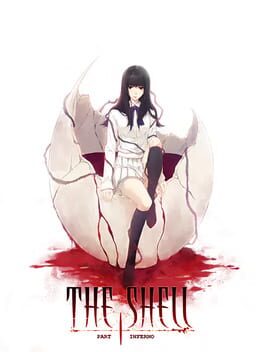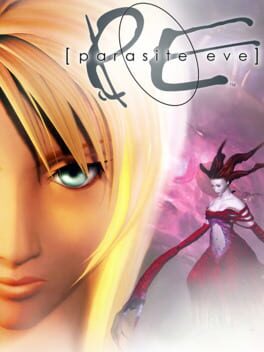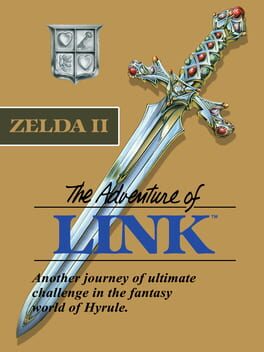DaddyRosfield
2001
"I was out of the frying pan...and into the fryer"
Final Fantasy X stands as a monumental achievement in the RPG genre, delivering a captivating world, deeply emotional storytelling, and a combat system that strikes a perfect balance between strategy and excitement. As a longtime fan of the series, I can confidently say that this entry has left an indelible mark on my gaming journey.
One of the game's most remarkable strengths lies in its narrative. From the very beginning, Final Fantasy X subverts expectations, immersing players in a world plagued by the enigmatic Sin and a complex, evolving religion. The journey of Tidus and his companions becomes more than just a quest to defeat a powerful adversary; it transforms into an exploration of faith, sacrifice, and existential questions that resonate on a profound level. The plot's intricate layers are masterfully woven, ensuring that players remain invested in every twist and turn.
Voice acting, which was relatively novel at the time of release, brought a new level of immersion to the game. While some may criticize the delivery, I found that the voices added depth and personality to the characters, making them feel more real and relatable. The emotional range conveyed through these performances lent additional weight to the heart-wrenching moments that define the game.
The Sphere Grid, a unique take on character progression, is a brilliant departure from traditional leveling systems. The customization it offers allows players to tailor their characters' growth to their preferred playstyle. While it might seem overwhelming at first, I found the Sphere Grid to be a rewarding and satisfying aspect of the game that encouraged strategic thinking and experimentation.
The world of Spira, with its diverse landscapes and meticulously designed cities, is a visual marvel. From the sun-drenched Besaid Island to the haunting Zanarkand Ruins, each location exudes a sense of wonder and discovery. This world-building adds a layer of realism that enhances the overall immersion and drives players to explore every nook and cranny.
Final Fantasy X's mini-games and side quests offer a delightful diversion from the main story. Whether it's blitzball, chocobo racing, or the lightning-dodging challenge, these activities showcase the game's versatility and depth, providing hours of entertainment beyond the main plot.
Above all, the relationship between Tidus and Yuna is the emotional core of the game. Their love story, while complex and at times tragic, is beautifully portrayed. Witnessing their growth, both individually and together, tugs at the heartstrings and adds a layer of authenticity to the game's themes of love and sacrifice.
In conclusion, Final Fantasy X is a masterwork that captures the essence of storytelling in gaming. Its narrative depth, memorable characters, stunning visuals, and innovative mechanics combine to create an unforgettable experience that has left an indelible mark on the RPG genre. As a fan, I am grateful for the impact this game has had on my gaming journey and its lasting place in the pantheon of gaming classics.
Final Fantasy X stands as a monumental achievement in the RPG genre, delivering a captivating world, deeply emotional storytelling, and a combat system that strikes a perfect balance between strategy and excitement. As a longtime fan of the series, I can confidently say that this entry has left an indelible mark on my gaming journey.
One of the game's most remarkable strengths lies in its narrative. From the very beginning, Final Fantasy X subverts expectations, immersing players in a world plagued by the enigmatic Sin and a complex, evolving religion. The journey of Tidus and his companions becomes more than just a quest to defeat a powerful adversary; it transforms into an exploration of faith, sacrifice, and existential questions that resonate on a profound level. The plot's intricate layers are masterfully woven, ensuring that players remain invested in every twist and turn.
Voice acting, which was relatively novel at the time of release, brought a new level of immersion to the game. While some may criticize the delivery, I found that the voices added depth and personality to the characters, making them feel more real and relatable. The emotional range conveyed through these performances lent additional weight to the heart-wrenching moments that define the game.
The Sphere Grid, a unique take on character progression, is a brilliant departure from traditional leveling systems. The customization it offers allows players to tailor their characters' growth to their preferred playstyle. While it might seem overwhelming at first, I found the Sphere Grid to be a rewarding and satisfying aspect of the game that encouraged strategic thinking and experimentation.
The world of Spira, with its diverse landscapes and meticulously designed cities, is a visual marvel. From the sun-drenched Besaid Island to the haunting Zanarkand Ruins, each location exudes a sense of wonder and discovery. This world-building adds a layer of realism that enhances the overall immersion and drives players to explore every nook and cranny.
Final Fantasy X's mini-games and side quests offer a delightful diversion from the main story. Whether it's blitzball, chocobo racing, or the lightning-dodging challenge, these activities showcase the game's versatility and depth, providing hours of entertainment beyond the main plot.
Above all, the relationship between Tidus and Yuna is the emotional core of the game. Their love story, while complex and at times tragic, is beautifully portrayed. Witnessing their growth, both individually and together, tugs at the heartstrings and adds a layer of authenticity to the game's themes of love and sacrifice.
In conclusion, Final Fantasy X is a masterwork that captures the essence of storytelling in gaming. Its narrative depth, memorable characters, stunning visuals, and innovative mechanics combine to create an unforgettable experience that has left an indelible mark on the RPG genre. As a fan, I am grateful for the impact this game has had on my gaming journey and its lasting place in the pantheon of gaming classics.
2003
"Until next time, Son of Sparda"
I often think about how video game sequels were once seen as experiments as to how a developer could evolve a formula, shake up a series' identity or provoke the player into feeling a certain way about previous entries. There's a lot to consider when you make a video game sequel and it needs to be carefully and thoughtfully done in a way that ensures you have something solid on hand on release.
Capcom unfortunately didn't have access to DLC and Patches in 2003 though. And it shows.
The game is simply miserable, actively so. I can't think of a game that just ticks boxes more and still refuses to be fun than this one. The game's difficulty level is notably toned down compared to its predecessor, leading to a less rewarding and engaging experience. Combat, a hallmark of the series, feels repetitive and lacks the satisfying complexity seen in the original. The enemy AI is lackluster, and some boss fights are disappointingly straightforward, leaving me yearning for the intense battles that defined the first game.
However on a more positive note, the soundtrack, while not as memorable as the first game, still complements the action-packed gameplay with a mix of rock and electronic elements.
I often think about how video game sequels were once seen as experiments as to how a developer could evolve a formula, shake up a series' identity or provoke the player into feeling a certain way about previous entries. There's a lot to consider when you make a video game sequel and it needs to be carefully and thoughtfully done in a way that ensures you have something solid on hand on release.
Capcom unfortunately didn't have access to DLC and Patches in 2003 though. And it shows.
The game is simply miserable, actively so. I can't think of a game that just ticks boxes more and still refuses to be fun than this one. The game's difficulty level is notably toned down compared to its predecessor, leading to a less rewarding and engaging experience. Combat, a hallmark of the series, feels repetitive and lacks the satisfying complexity seen in the original. The enemy AI is lackluster, and some boss fights are disappointingly straightforward, leaving me yearning for the intense battles that defined the first game.
However on a more positive note, the soundtrack, while not as memorable as the first game, still complements the action-packed gameplay with a mix of rock and electronic elements.
1986
"It's Dangerous to Go Alone. Take this!"
The Legend of Zelda's influence on the American games market in particular was something I wish I could have beheld, simply because I think that if I played it back in its prime, I would have loved it as much as any other kid from the eighties did. Alas, a game that's as cryptic and at times bizzare as this does not really hold up relatively speaking. The Legend of Zelda faces an uphill battle for the average modern video game player, and this isn't me trying to dunk on the casuals. Far from it. Quite simply the game is too archaic that even if you think you can accept its age and what that could entail, you truly cannot grasp the absurdity that The Legend of Zelda will make you go through to progress through its arduous quest. If you are willing to brave the "Hyrule Fantasy" and can stomach its manys traps and failings, then by all means, enjoy. It is a cornerstone piece of the video game industry, just not one that I think can be truly accessible to everyone these days.
The Legend of Zelda's influence on the American games market in particular was something I wish I could have beheld, simply because I think that if I played it back in its prime, I would have loved it as much as any other kid from the eighties did. Alas, a game that's as cryptic and at times bizzare as this does not really hold up relatively speaking. The Legend of Zelda faces an uphill battle for the average modern video game player, and this isn't me trying to dunk on the casuals. Far from it. Quite simply the game is too archaic that even if you think you can accept its age and what that could entail, you truly cannot grasp the absurdity that The Legend of Zelda will make you go through to progress through its arduous quest. If you are willing to brave the "Hyrule Fantasy" and can stomach its manys traps and failings, then by all means, enjoy. It is a cornerstone piece of the video game industry, just not one that I think can be truly accessible to everyone these days.
2009
No quote here, just pain.
League of Legends is a poorly designed game, one that requires too much co-ordination and knowledge for a new player tor eally come to terms with its mechanics quickly enough to not get instantly flamed by teammates upon joining a match. There is no gratification when playing this game, just pure suffering and denial from people who swear they're better than they are, it's just "their teams fault" when they lose.
This is one of the worst experiences to be had in a video game. Avoid at all costs.
League of Legends is a poorly designed game, one that requires too much co-ordination and knowledge for a new player tor eally come to terms with its mechanics quickly enough to not get instantly flamed by teammates upon joining a match. There is no gratification when playing this game, just pure suffering and denial from people who swear they're better than they are, it's just "their teams fault" when they lose.
This is one of the worst experiences to be had in a video game. Avoid at all costs.
2023
Final Fantasy XVI is the pinnacle of the action RPG and everything that came before this was building up to it. From the early 2000's the signs of change were apparent in the DNA of Final Fantasy X, XI and XII and when XIII perhaps deviated from the soul of the series too much, fans were eary of Square Enix's next attemps. While initially a failure, Final Fantasy XIV grew into an internationally reknowned and beloved game, one of the most profitable Japanese published ever in fact and while it certainly wasn't perfect, Final Fantasy XV brought back the soul and iconography of the series to leave us wanting more and more.
Final Fantasy XVI brought more, and then some.
The dark and gritty story inspired by Game of Thrones introduces us to some of the most grounded and realistic characters in Final Fantasy history with dramatic turns and themeing that absolutely left me floored. The combat and boss fights literally brought me to my knees at points with enough depth and spectacle to keep you coming back for more long after you've finished the main story.
This is one of the best games of the generation and perhaps even of all time.
Final Fantasy XVI brought more, and then some.
The dark and gritty story inspired by Game of Thrones introduces us to some of the most grounded and realistic characters in Final Fantasy history with dramatic turns and themeing that absolutely left me floored. The combat and boss fights literally brought me to my knees at points with enough depth and spectacle to keep you coming back for more long after you've finished the main story.
This is one of the best games of the generation and perhaps even of all time.
"And the Master Sword sleeps....FOREVER!"
The Legend of Zelda was a game that in its day changed how the Adventure game was thought of. There's no doubt in my mind that without the original Legend of Zelda, the Adventure game genre would have stagnated immensely. However, it had its flaws, some of which were just completely ignored by its 1987 sequel. The 1991 Super NES sequel to that game, A Link to the Past, is a triumphant return to what made the original Legend of Zelda such a beloved game in the first place while expanding on all of its elements and negating any and all flaws it had. A Gorgeous look even for an early Super NES game, one of the best soundtracks on the system, an incredible game feel and a pair of worlds that feel so unique yet familiar to one another. A Link to the Past was a game that cast a long shadow over the Zelda franchise and it's easy to see why. Its formula was emulated in nearly game after this one for over twenty five years. One of the most important SNES games, though it's not perfect to me. Some of the dungeons overstay their welcome and the swordplay is sometimes really finnicky. Other than that, it's an immensely polished Adventure game that is the best on its platform.
The Legend of Zelda was a game that in its day changed how the Adventure game was thought of. There's no doubt in my mind that without the original Legend of Zelda, the Adventure game genre would have stagnated immensely. However, it had its flaws, some of which were just completely ignored by its 1987 sequel. The 1991 Super NES sequel to that game, A Link to the Past, is a triumphant return to what made the original Legend of Zelda such a beloved game in the first place while expanding on all of its elements and negating any and all flaws it had. A Gorgeous look even for an early Super NES game, one of the best soundtracks on the system, an incredible game feel and a pair of worlds that feel so unique yet familiar to one another. A Link to the Past was a game that cast a long shadow over the Zelda franchise and it's easy to see why. Its formula was emulated in nearly game after this one for over twenty five years. One of the most important SNES games, though it's not perfect to me. Some of the dungeons overstay their welcome and the swordplay is sometimes really finnicky. Other than that, it's an immensely polished Adventure game that is the best on its platform.
2001
"In my restless dreams, I see that town..."
In terms of storytelling, few games even 21 years after its inital release match the emotional heights of Silent Hill 2's deeply dark delve into the mind and world of James Sunderland and the other unfortunate souls who happened to be in Silent Hill on that day. A masterfully written script alongside one of the most hauntingly beautiful musical scores in any mainstream video game. If the controls and combat were a bit better then the game would literally be perfect but alas perfection is not something so easily achieved in this world. Be sure to play the Enhanced Edition on PC if you don't have access to authentic 6th Gen hardware, the HD version is complete hogwash.
In terms of storytelling, few games even 21 years after its inital release match the emotional heights of Silent Hill 2's deeply dark delve into the mind and world of James Sunderland and the other unfortunate souls who happened to be in Silent Hill on that day. A masterfully written script alongside one of the most hauntingly beautiful musical scores in any mainstream video game. If the controls and combat were a bit better then the game would literally be perfect but alas perfection is not something so easily achieved in this world. Be sure to play the Enhanced Edition on PC if you don't have access to authentic 6th Gen hardware, the HD version is complete hogwash.
2001
"Let's rock, baby"
Devil May Cry was brought into this world as a maligned half-step in re-creating something from the ashes of an abandoned Resident Evil 4 beta concept. It shows. The camera, stilted voice acting and wonky at times mechanics hinder what is a game that all in all is one of the most important of its era. Devil May Cry is a game that's worth playing, though moreso as a time capsule for seeing how the action genre evolved into something more than what previous attempts like The Bouncer from Squaresoft or Konami's Castlevania games on Nintendo 64 could offer. A game with a lot of heart and style, but rough around the edges.
Devil May Cry was brought into this world as a maligned half-step in re-creating something from the ashes of an abandoned Resident Evil 4 beta concept. It shows. The camera, stilted voice acting and wonky at times mechanics hinder what is a game that all in all is one of the most important of its era. Devil May Cry is a game that's worth playing, though moreso as a time capsule for seeing how the action genre evolved into something more than what previous attempts like The Bouncer from Squaresoft or Konami's Castlevania games on Nintendo 64 could offer. A game with a lot of heart and style, but rough around the edges.
"This party's getting crazy!"
Devil May Cry 3 feels like an apology for the disasterpiece that was its predecessor. In almost every way possible, DMC3 expands and improves on what the previous two games achieved and set out to do. The multitude of modes, difficulties, weapons and styles on offer allows a degree of player expression that is unlike anything seen previously - and rarely since - in an action game.
The various weapons and styles at Dante's disposal allow for an impressive array of combos and strategies, creating a symphony of destruction that's visually stunning. The fluidity of chaining together sword strikes, gunshots, and evasive maneuvers is nothing short of satisfying. The game truly captures the essence of stylish action, giving players the tools to craft their own unique fighting style. The satisfaction derived from mastering these mechanics and watching Dante perform acrobatic feats is unparalleled, and it's this aspect that has cemented the game's place in action gaming history.
Devil May Cry 3's difficulty curve has been the subject of countless debates and complaints. While a challenging game can be rewarding, this installment often crosses the line into outright punishing territory. The spike in difficulty early on can be demoralizing for even seasoned players, leading to a sense of discouragement rather than motivation. This difficulty imbalance can hinder one's ability to fully appreciate the intricate combat system, as players are forced to deal with infuriatingly cheap enemies and boss battles that feel more like a test of patience than skill.
For those willing to endure the hardships, Devil May Cry 3 offers moments of pure gaming ecstasy, but for those seeking a more well-rounded experience, its flaws might prove too significant to overlook.
Devil May Cry 3 feels like an apology for the disasterpiece that was its predecessor. In almost every way possible, DMC3 expands and improves on what the previous two games achieved and set out to do. The multitude of modes, difficulties, weapons and styles on offer allows a degree of player expression that is unlike anything seen previously - and rarely since - in an action game.
The various weapons and styles at Dante's disposal allow for an impressive array of combos and strategies, creating a symphony of destruction that's visually stunning. The fluidity of chaining together sword strikes, gunshots, and evasive maneuvers is nothing short of satisfying. The game truly captures the essence of stylish action, giving players the tools to craft their own unique fighting style. The satisfaction derived from mastering these mechanics and watching Dante perform acrobatic feats is unparalleled, and it's this aspect that has cemented the game's place in action gaming history.
Devil May Cry 3's difficulty curve has been the subject of countless debates and complaints. While a challenging game can be rewarding, this installment often crosses the line into outright punishing territory. The spike in difficulty early on can be demoralizing for even seasoned players, leading to a sense of discouragement rather than motivation. This difficulty imbalance can hinder one's ability to fully appreciate the intricate combat system, as players are forced to deal with infuriatingly cheap enemies and boss battles that feel more like a test of patience than skill.
For those willing to endure the hardships, Devil May Cry 3 offers moments of pure gaming ecstasy, but for those seeking a more well-rounded experience, its flaws might prove too significant to overlook.
"Find my true self"
The Shell Part 1: Inferno, originally released as Kara no Shojo (The Girl of the Shell), is a masterclass in video game characterisation and atmosphere. The intricately written murder mystery contains so many small little details that add up to a whole which creates this sense of place and feeling of familiarity that few other visual novels could even come close to achieving. The gorgeous artwork which has elements of sketchbook drawings and muted anime colour palettes are gorgeous and combined with a beautiful and sombre OST, Innocent Grey's first entry into their masterful trilogy is one worth playing if you have the patience to sit through a 15 hour long visual novel.
The Shell Part 1: Inferno, originally released as Kara no Shojo (The Girl of the Shell), is a masterclass in video game characterisation and atmosphere. The intricately written murder mystery contains so many small little details that add up to a whole which creates this sense of place and feeling of familiarity that few other visual novels could even come close to achieving. The gorgeous artwork which has elements of sketchbook drawings and muted anime colour palettes are gorgeous and combined with a beautiful and sombre OST, Innocent Grey's first entry into their masterful trilogy is one worth playing if you have the patience to sit through a 15 hour long visual novel.
1998
"It's Snake. I'm in front of the disposal facility."
In 1998, few video games - if any - had the cinematic gravitas or complexity that Metal Gear Solid brought to the table when it released. Despite its age, Metal Gear Solid's story and presentation are a cut above most other games for the original PlayStation. The themes of political tension, geneology, self-acceptance and war (and its affects on soldiers) are all explored in a beautifully poetic way that only Hideo Kojima (and Jeremy Blaustein's English translation!) could provide. While the gameplay is quite rough around the edges - particularly in the depth of the stealth elements and the amount of backtracking the player is forced to do - it still has its own charm and appeal. The pacing of the boss fights and sneaking around a world with such and entrenched sense of place and immersive atmosphere thanks to an incredible soundtrack AND soundscape, along with a finely balanced difficulty curve make Metal Gear Solid a game worth playing even over 25 years after its initial release.
In 1998, few video games - if any - had the cinematic gravitas or complexity that Metal Gear Solid brought to the table when it released. Despite its age, Metal Gear Solid's story and presentation are a cut above most other games for the original PlayStation. The themes of political tension, geneology, self-acceptance and war (and its affects on soldiers) are all explored in a beautifully poetic way that only Hideo Kojima (and Jeremy Blaustein's English translation!) could provide. While the gameplay is quite rough around the edges - particularly in the depth of the stealth elements and the amount of backtracking the player is forced to do - it still has its own charm and appeal. The pacing of the boss fights and sneaking around a world with such and entrenched sense of place and immersive atmosphere thanks to an incredible soundtrack AND soundscape, along with a finely balanced difficulty curve make Metal Gear Solid a game worth playing even over 25 years after its initial release.
1998
"I'm a cop; it's my job"
Parasite Eve is a game that is woefully underwhelming despite some really cool ideas. The story is a sequel to a Japanese novel/movie from the same time period however I don't think even fans of the source material would find the story of this PlayStation Survival Horror RPG to be very appealing. Characters with confusing motivations, lacking personalities and dry dialogue really drag out the plot and make any cutscene feel like a chore to get through.
Thankfully, Parasite Eve's gameplay system is really cool, albeit lacking a lot of depth. Being a hybrid of Resident Evil and Final Fantasy, Parasite Eve's time based gunplay system adds a layer of tension I've rarely seen in an RPG to date though the magic system, called "PE" in this game, leaves a lot to be desired since there's not much to it other than spamming Heal magic and the Haste spell (Which is a crutch to be honest). A game with a solid foundation tied onto one of the most boring narratives I've ever seen in a game.
Parasite Eve is a game that is woefully underwhelming despite some really cool ideas. The story is a sequel to a Japanese novel/movie from the same time period however I don't think even fans of the source material would find the story of this PlayStation Survival Horror RPG to be very appealing. Characters with confusing motivations, lacking personalities and dry dialogue really drag out the plot and make any cutscene feel like a chore to get through.
Thankfully, Parasite Eve's gameplay system is really cool, albeit lacking a lot of depth. Being a hybrid of Resident Evil and Final Fantasy, Parasite Eve's time based gunplay system adds a layer of tension I've rarely seen in an RPG to date though the magic system, called "PE" in this game, leaves a lot to be desired since there's not much to it other than spamming Heal magic and the Haste spell (Which is a crutch to be honest). A game with a solid foundation tied onto one of the most boring narratives I've ever seen in a game.
2023
"If I could just forget the pain of that night- even for a second..."
The original Resident Evil 4 was a landmark moment in the history of video games. For years the series had languished in poor controls, bad voice acting and stagnant game design that even the move to full 3D in 2000's Code Veronica couldn't fix. RE4 changed all of that, and then some. The 2023 remake is a beautiful re-imagining that is nearly perfect in every regard. While it has its moments of pure idiocy (lack of i-frames means you'll be getting hitstunned from every other angle) the charm and character of Resident Evil 4 is mostly in tact here. Sure, there's some stuff toned down like the sexuality and the campiness, but it remains mostly true to itself and that's all it needed to be with a great soundtrack, stunning visuals and tight controls that make this one of the best games of the year.
The original Resident Evil 4 was a landmark moment in the history of video games. For years the series had languished in poor controls, bad voice acting and stagnant game design that even the move to full 3D in 2000's Code Veronica couldn't fix. RE4 changed all of that, and then some. The 2023 remake is a beautiful re-imagining that is nearly perfect in every regard. While it has its moments of pure idiocy (lack of i-frames means you'll be getting hitstunned from every other angle) the charm and character of Resident Evil 4 is mostly in tact here. Sure, there's some stuff toned down like the sexuality and the campiness, but it remains mostly true to itself and that's all it needed to be with a great soundtrack, stunning visuals and tight controls that make this one of the best games of the year.
"Link begins his most adventuresome quest yet..."
A marked improvement over the original Legend of Zelda in many ways, but has its own myriad of issues. Zelda II is a game that establishes a lot of series staples such as towns to visit, a magic mechanic and the Triforce of Courage to name a few. The presentation is also far mroe interesting than that of the original game, with a more appealing colour palette and a soundtrack with more than three songs (it has a whopping EIGHT songs not including the title and end credits themes!). The core gameplay is also fun when it works, with a combat system that to me seemed to evoke a classic case of player skill being the deciding factor on success. However, the level design - especially in the later half of the game - completely falls apart and makes the game too unfair with the way that the continue system works. Trust me, Zelda II is a game with a tonne of potential which is why there have been many games since trying to emulate its style, but the 1987 game from Nintendo simply has too much unfair BS in its second half for me to truly recommend to anyone other than diehard NES enthusiasts who want to play a game that truly defines "NES Hard".
A marked improvement over the original Legend of Zelda in many ways, but has its own myriad of issues. Zelda II is a game that establishes a lot of series staples such as towns to visit, a magic mechanic and the Triforce of Courage to name a few. The presentation is also far mroe interesting than that of the original game, with a more appealing colour palette and a soundtrack with more than three songs (it has a whopping EIGHT songs not including the title and end credits themes!). The core gameplay is also fun when it works, with a combat system that to me seemed to evoke a classic case of player skill being the deciding factor on success. However, the level design - especially in the later half of the game - completely falls apart and makes the game too unfair with the way that the continue system works. Trust me, Zelda II is a game with a tonne of potential which is why there have been many games since trying to emulate its style, but the 1987 game from Nintendo simply has too much unfair BS in its second half for me to truly recommend to anyone other than diehard NES enthusiasts who want to play a game that truly defines "NES Hard".
2022
Elden Ring is a game with incredible scope. Before playing it at launch, I don't think I ever found myself as immersed in an open world setting as I had with The Lands Between. The first 30 or so hours of playtime were mostly spent exploring the world, finding hidden secrets and coming to grips with one of the most fair and challenging difficulty curves in modern AAA gaming. The team at From Software truly set a new standard for these kind of games with Elden Ring and if it weren't for a woefully drawn out second half, I would have given this a perfect score. Alas, the game outstays its welcome once you finish the Royal Capital, and becomes a chore to slog through once the endgame truly comes. If it were not for that, it would be a near perfect experience.

